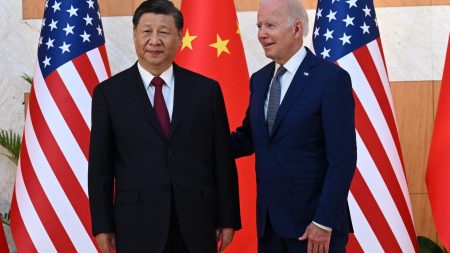President Joe Biden has signed a bill into law that gives TikTok’s Chinese owner, ByteDance, nine months to either divest or face a potential ban in the United States. This order is part of a set of four bills that include military aid for Ukraine, Israel, and Taiwan. TikTok has vowed to challenge the order in court, stating that they believe the facts and the law are on their side and they will ultimately prevail.
TikTok currently employs nearly 7,000 people in the U.S., and the impact of the order on the company and its staff remains unclear. The bill comes in response to frustration on Capitol Hill over perceived inaction by the Committee on Foreign Investment in the United States regarding proper scrutiny of TikTok following ByteDance’s acquisition of Musical.ly in 2017. Policymakers are increasingly concerned about data collection, storage, and management by foreign-owned companies due to potential security and privacy risks, particularly in relation to TikTok and its alleged ties to the Chinese government.
The TikTok ban reflects the broader shift in U.S. foreign investment policy towards technology and data security from foreign entities. National security concerns have heightened scrutiny of foreign investments, especially from countries with complex geopolitical relationships like China. This trend aligns with efforts to counter Chinese influence in critical technology sectors and protect domestic industries, signaling tighter controls on investments deemed sensitive in the future.
The passage of this legislation marks a pivotal moment where digital sovereignty, national security, and foreign investment are increasingly interconnected. The growing skepticism towards Chinese technology firms and investments in the U.S. reflects broader strategic objectives of safeguarding critical technology sectors from foreign influence. The expansion of measures aimed at strengthening enforcement power and broadening the scope of the Committee on Foreign Investment in the United States indicates stricter controls on sensitive investments in the U.S.
Whether the TikTok ban is enforced or faces legal challenges, the legislation represents a significant development in the evolving landscape of foreign investment, technology security, and national sovereignty. The ongoing debate highlights the importance of balancing economic interests, national security concerns, and data privacy in the increasingly interconnected and globalized world of technology and digital commerce. As tensions between the U.S. and China continue to escalate, the scrutiny on foreign investment and technology companies is expected to intensify, with potential implications for future investments and business operations in the U.S.















